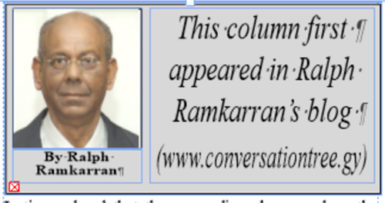Last week the 27-year-old Anthony Joshua dethroned 41-year-old Wladimir Klitschko, the reigning world heavyweight boxing champion for the past 15 years. In the history of heavyweight boxing, Klitschko is one of the all-time greats. He would dominate a fight with sharp and powerful left jabs, keeping his opponent at bay, until he is able to land devastating right hooks or right crosses, sometimes in combinations, with lightning speed. Up until the fight, Joshua was merely a promising newcomer.
The fight began with Joshua taking away the offensive capability from Klitschko by himself utilizing the left jab repeatedly. Klitschko looked uncertain, retreating, his reflexes less than sharp, which were not good signs. The fight was close for much of the time, with Joshua falling to a right  in the sixth round but weathering the storm. Thereafter it appeared that Klitschko was looking for an opportunity to land another right and gave up trying to win by scoring boxing points. This was a fatal mistake. It reduced his attention to his defence. The age difference showed and Klitschko’s stamina gave way. Starting with a vicious uppercut in the eleventh round through Klitschko’s open arms looking for that elusive right hook, rather than being in a defensive posture, Joshua delivered a flurry of punches from which Klitschko could not recover.
in the sixth round but weathering the storm. Thereafter it appeared that Klitschko was looking for an opportunity to land another right and gave up trying to win by scoring boxing points. This was a fatal mistake. It reduced his attention to his defence. The age difference showed and Klitschko’s stamina gave way. Starting with a vicious uppercut in the eleventh round through Klitschko’s open arms looking for that elusive right hook, rather than being in a defensive posture, Joshua delivered a flurry of punches from which Klitschko could not recover.
As in sport, so in all other endeavours, the eleventh round inevitably arrives when the changing of the guard is placed on the agenda. The contest in the Public Service Union (PSU) has been attracting press attention over the past few weeks, with a group of members challenging President Patrick Yarde, who has held high office for thirty plus years and is reputedly over seventy. This is not the first time that the presidency of Mr. Yarde has been challenged and he is astute enough to know that it won’t be the last. He has won every time and presumably will continue to win until, like Wladimir Klitschko, age takes his stamina. He is fit and appears to be in good health so, for his opponents, the wait will be a long one. Mr. Yarde’s charges of a political agenda in this and every electoral contest against him, this time clearly against the PNCR, but at other convenient times against the PPP in relation to other issues, is belied by his appointment as Chair (ag) of the Public Service Commission. The political administration clearly has confidence in Mr. Yarde, coming after his lone support for gargantuan ministerial salary increases a while ago.
Patrick Yarde is only a small, even though an important part, of the trade union movement whose future has been brought into focus by the recent poor turnout for May Day last week. Has its reduced militancy over the years and declining influence been the result of the return of democracy in 1992, or the continuing division between the TUC and FITUG, or is it due to its aging leadership? The three large unions, GAWU, PSU and GLU, all have leaders who have been deeply entrenched in office for thirty or more years. The TUC has Lincoln Lewis, younger and less advanced in years, but no spring chicken. These leaders cannot be faulted for their commitment to trade unionism, workers’ rights and for their dedication to their members’ welfare. But who can deny that their eleventh round has arrived? And no Anthony Joshua has been permitted any visibility on the horizon, except for Seepaul Narine in GAWU.
The trade union movement did not seize the opportunities offered by the democratic opening of the early 1990s to elevate their mandate to include economic policies that would drive economic development instead of being wedded merely to basic campaigns for better wages and conditions. Even the expansive legislative framework in the 1990s protecting and defending workers’ rights was government initiated and directed.
This failure of trade unionism has been felt acutely in the sugar industry. The part of the World Bank proposal for the sugar industry recommending the closure of the Demerara estates was resisted by GAWU. This plan was linked to the refurbishment of the Berbice estates and a new factory at Skeldon to take production to 400,000 tons a year. GAWU resisted and also failed to fight for a dedicated portion of EU grants for budgetary support, made to compensate for the reducing prices for sugar, to be given to the sugar industry to invest in production. High cost of production, low yields and decrepit factories as a result of inadequate investment that GAWU should have struggled for, is now resulting in current problems. These experiences show that ignoring the problems in your industry, failing to demand constructive policies and confining your energies to after the fact struggles and combating tax increases in budgets without a clear agenda for growth are insufficient postures for trade unions in the modern world.
Trade unionism in Guyana needs a dose of modernisation and a reorientation of both its goals and methods. Without a growing economy workers’ rights and benefits cannot expand and be defended. Only new and modern leadership can raise the game of the trade union movement.








